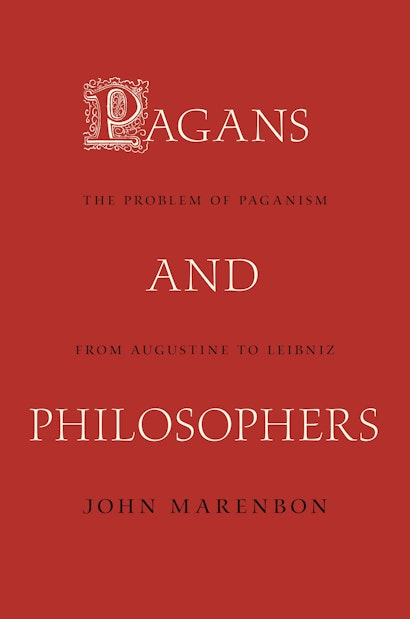Pagans and Philosophers: The Problem of Paganism from Augustine to Leibniz


Hardcover
Paperback
ebook
- Sale Price:
- $19.57/£15.40
- Price:
-
$27.95/£22.00 - ISBN:
- Published:
- Mar 22, 2015
- Copyright:
- 2015
- Main_subject:
- Religion
30% off with code PUP30
From the turn of the fifth century to the beginning of the eighteenth, Christian writers were fascinated and troubled by the “Problem of Paganism,” which this book identifies and examines for the first time. How could the wisdom and virtue of the great thinkers of antiquity be reconciled with the fact that they were pagans and, many thought, damned? Related questions were raised by encounters with contemporary pagans in northern Europe, Mongolia, and, later, America and China.
Pagans and Philosophers explores how writers—philosophers and theologians, but also poets such as Dante, Chaucer, and Langland, and travelers such as Las Casas and Ricci—tackled the Problem of Paganism. Augustine and Boethius set its terms, while Peter Abelard and John of Salisbury were important early advocates of pagan wisdom and virtue. University theologians such as Aquinas, Scotus, Ockham, and Bradwardine, and later thinkers such as Ficino, Valla, More, Bayle, and Leibniz, explored the difficulty in depth. Meanwhile, Albert the Great inspired Boethius of Dacia and others to create a relativist conception of scientific knowledge that allowed Christian teachers to remain faithful Aristotelians. At the same time, early anthropologists such as John of Piano Carpini, John Mandeville, and Montaigne developed other sorts of relativism in response to the issue.
A sweeping and original account of an important but neglected chapter in Western intellectual history, Pagans and Philosophers provides a new perspective on nothing less than the entire period between the classical and the modern world.
Awards and Recognition
- One of Choice's Outstanding Academic Titles for 2015